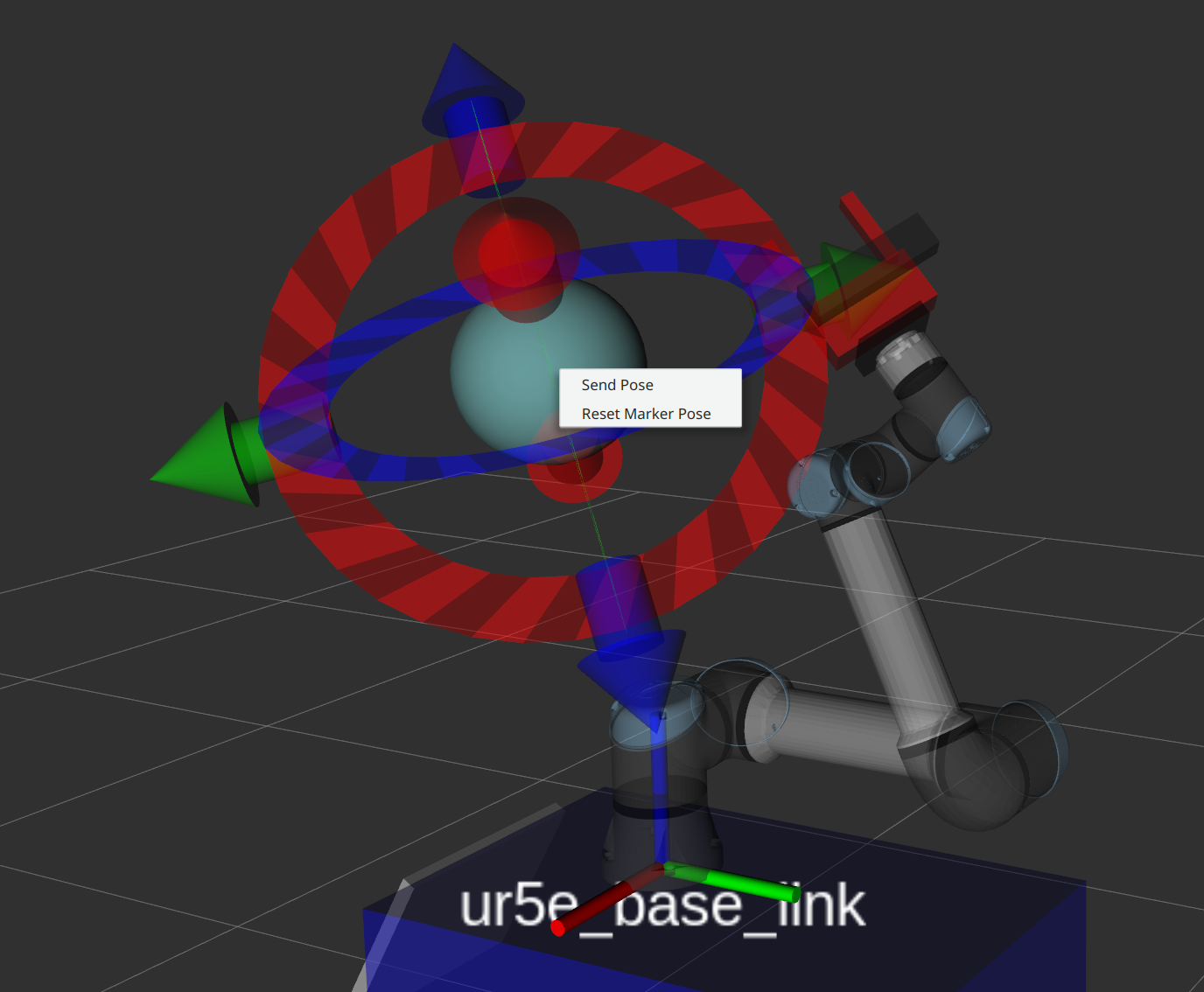A simple trajectory generator that creates and publishes a linear trajectory in Cartesian space.
- Publish a linear trajectory based on the current pose of a frame and a goal
- Optional synchronization of rotation and translation
- Implements a velocity profile with
- User-defined separate values for constant acceleration and deceleration
- Maximum rotational and translational velocity
- Allows implementation of other velocity profiles
- dynamic reconfigure configuration
- No collision checks
- No feasibility checks
- No handling of existing velocity of the end effector
Open three terminals:
- $
roscore - $
mon launch cartesian_trajectory_generator publisher_demo.launch - $
mon launch cartesian_trajectory_generator trajectory_generator.launch
The demo will use three topics:
/cartesian_trajectory_generator/current_goal: Publishes the current goal/cartesian_trajectory_generator/new_goal: Accepts new goals/cartesian_trajectory_generator/ref_pose: Publishes the current reference pose
$ rosrun rqt_reconfigure rqt_reconfigure
In the rqt-gui open the menu for this pakcage, choose a new goal pose and click the "ready_to_send" button.
You can send new goal to /cartesian_trajectory_generator/new_goal like this:
$ rostopic pub /cartesian_trajectory_generator/new_goal geometry_msgs/PoseStamped "header:
seq: 0
stamp:
secs: 0
nsecs: 0
frame_id: 'world'
pose:
position:
x: 0.0
y: 0.0
z: 2.0
orientation:
x: 0.0
y: 0.0
z: 0.0
w: 1.0"
This package publishes an interactive marker. You can move it to your desired goal pose. A right click opens a context menu that has an option "Send Pose".
The marker position is updated when new goals arrive via messages or dynamic reconfigure.

The ROS node will spawn an action server at /cartesian_trajectory_generator/goal_action that can be used to send an action.
The action will succeed once the reference trajectory has finished and the end-effector is below both the specified tolerances. With the action it is also possible to specify custom ones. Otherwise, the values of the parameters trans_goal_threshold_default and rot_goal_threshold_default are used.
The trajectory generator announces a service at /cartesian_trajectory_generator/overlay_motion.
An example call can look like this:
rosservice call /cartesian_trajectory_generator/overlay_motion "header:
seq: 0
stamp: {secs: 0, nsecs: 0}
frame_id: 'world'
motion: 1
radius: 0.2
path_distance: 0.01
path_velocity: 0.1
allow_decrease: false
dir: {x: 0.0, y: 0.0, z: 1.0}"
The static values for the motion are defined in the service message definition.
A call with motion = 0, that corresponds to NONE in the service message definition, or an invalid value will cancel the current motion.
The reference pose will smoothly transition back to the last goal.